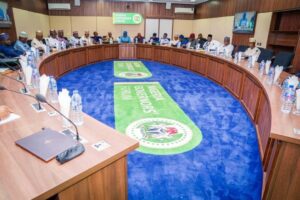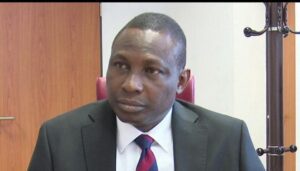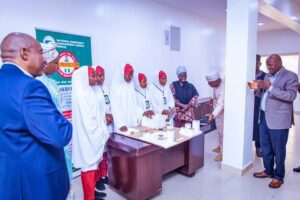
Subsidy removal: Borno, Adamawa, Yobe rolls out palliative
Borno, Adamawa and Yobe governments have embarked on measures to ameliorate the current hardship on citizens caused by the removal of petrol subsidy.
Citizens of the three states worst affected by insurgency in North East have been experiencing hardship which many said is further worsened by the subsidy removal.
In Borno and Yobe states, the distribution of palliatives to households has commenced in earnest, while in Adamawa, the committee constituted for the exercise is still working on modalities.
Gov. Babagana Zulum of Borno said during the launch of the palliatives distribution at Maisandari Ward of Maiduguri that his administration would sustain the support to the less-privileged and communities affected by insurgency throughout his tenure.
Zulum said that while the Federal Government palliatives would cater for 100,000 vulnerable households in the state, his administration would provide for additional 300,000 households to make a total of 400,000 households.
He explained that ”Borno’s case is peculiar as some areas have been devastated by the insurgency and returnees are yet to have full access to their farmlands, hence the need to continue supporting them.”
The Chairman of North East Civil Society Forum, Amb. Ahmed Shehu, lauded the early distribution of palliatives by the Borno Government, particularly the involvement of CSOs in the committee, and urged other states to emulate Borno.
He said “I am urging other states to also involve Civil Society Organisations in the palliative committees for transparency and accountability.”
In Yobe, the Deputy Governor who is the Chairman of the palliatives committee, Alhaji Idi Gubana, said distribution of palliatives has commenced, targeting 80,000 households in 17 local government areas of the state.
Gubana, who spoke through his Press Secretary, Mr Hussaini Mai-Suleh, said the distribution had been launched in the three senatorial zones, with that of Zone A in Damaturu, Zone B in Fune, and Zone C in Jakusko.
In Adamawa, the distribution of palliatives is yet to commence, but the state government had constituted a distribution committee under the Chairmanship of the Secretary to the State Government, Alhaji Auwal Tukur.
The committee was inaugurated on Wednesday by the Deputy Governor, Prof. Kaleptapwa Farauta, and members were tasked to ensure that the palliatives reached the intended persons.
“Work out necessary modalities for the transportation of palliatives, both food and non-food items, from the source to the distribution points.
“Monitor and liaise with relevant stakeholders or community agents and ensure equitable distribution of the palliatives to the intended beneficiaries,” Farauta tasked members of the committee.
Some Internally Displace Persons (IDPs) at Damare camp in Girei Local Government Area of Adamawa, urged the state goverment not to forget displaced persons in the exercise.
Ladi Paul, the Women Leader in the camp, said that about 227 households were in serious need of food support in the camp.
“I am appealing to government to come to our aid; we were affected by flood in 2022 and the removal of fuel subsidy has further compounded our situation in the camp”, she said.
Some residents of Yola also lamented the delay in the distribution of the palliatives, adding that the recent looting of food items in government stores in the states by some youths should serve as a wake-up call.



